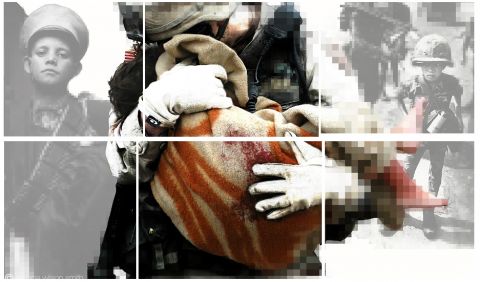My ohyoiw work since June:
Despite my vehemently anti-commemoration feelings, when I was asked if I’d like to curate the WW1 research of 6th form students of the Simon Langton Grammar Schools in Canterbury, I was keen to do it. It seemed to me that here was an excellent way to learn more about a subject that appalled me. Unlike an art project I couldn’t go in with strategies to develop the students’ creative responses to the war. There were crucial exams looming, and the long summer holiday. The students had worked closely with the Gateways to the First World War project at the University of Kent’s School of History, and with the team at the Heritage Museum in Canterbury , and they’d also dipped into the Cathedral archives. They’d researched archive material that related specifically to Canterbury, and people who lived here at the outbreak of war. At our first meeting the students looked at the Beaney Museum’s Front Room gallery, and came up with ideas about how they thought their research could be interpreted. They chose three strands of importance: the differences between the experiences of men and women of Canterbury during the War, the development of the War and how it was reflected in the daily life of Canterbury, and their discovery that memorials to the dead were often inaccurate; they wanted to create a memorial of their own.
‘Canterbury at War’ interprets their research.
I’ve made a large map based on a contemporary Ordnance Survey map, on which I’ve indicated events and places of significance, and the people whose documents are in the Museum archives. I’ve also designed a timeline to chart significant stages of the war against events in Canterbury. A cabinet contains archive material that the students used for their project: letters, identity cards, medals etc… I was keen to involve the students in creative activity themselves, and some have made their own ‘artefacts’: a ‘zine about women and the war, a book of authentic wartime recipes, a poem, and a soundtrack to a short film I’ve compiled, featuring popular war-time songs by members of the school choir.
The exhibition also looks at the value of remembrance, and the un-remembered: 306 soldiers who were executed for insubordination between 1914 – 1919.
This leads in to my installation ‘Flight’ in St Marys Church in Lower Hardres, nr Canterbury, from October 18 – Nov 2, which tells the stories of some of the men ‘shot at dawn’.
Now the Beaney exhibition is open, I have two weeks to complete the preparation for ‘Flight’: all the objects are made, but I’ve found so much variation between ‘official’ lists of those 306 men, that I’m double and triple checking now.


